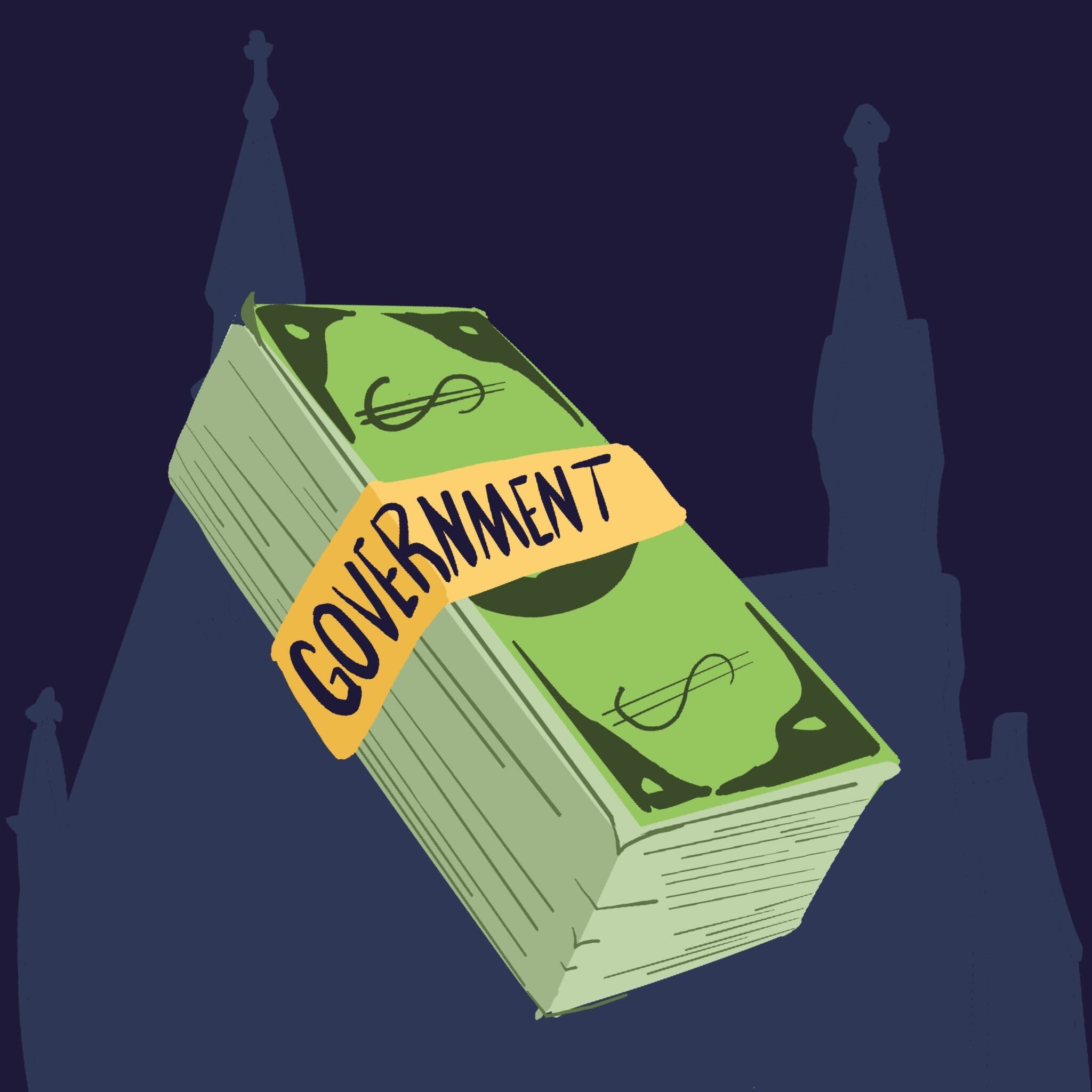Abel Tesfaye lays The Weeknd to rest in his sixth studio album, Hurry Up Tomorrow, released on the final day of January. This album serves as the third and final installment of the After Hours trilogy – the second trilogy of his career – and his last album under the stage name and character of The Weeknd. With iconic features from Travis Scott to Lana Del Rey, along with his signature synths and pop sound, Tesfaye wraps up The Weeknd’s story beautifully.
Tesfaye has been hinting at the end of The Weeknd for some time now. In a 2023 interview, he told W Magazine, “It’s getting to a place and time where I’m getting ready to close the Weeknd chapter. I’ll still make music, maybe as Abel, maybe as The Weeknd. But I still want to kill The Weeknd. And I will.” Hurry Up Tomorrow is the culmination of these sentiments.
This final chapter kicks off with “Wake Me Up,” an intricate two-part track, shifting from ominous synths and drums that lead into a groovy tune sampling Michael Jackson’s “Thriller.” In this song, Tesfaye questions if God is real, and if so, he asks God to wake him up presumably from the unhealthy lifestyle he’s been leading. This song sets up the recurring theme of religion throughout the album, which differs from his previous work.
Tesfaye usually explores his deteriorating view or indifference regarding spirituality, like in tracks like “Faith” from his fourth studio album, After Hours. The singer’s desire for a relationship with God is new territory for him, setting this album apart from his others. The various challenges he details throughout the album, from drug addiction to self-deprecating thoughts, may explain why he’s turning over this new leaf.
The pop star dedicates a spot on his album to the 12-second skit “I Can’t F–ing Sing” where he references an incident during his After Hours Til Dawn tour in 2022. At the Los Angeles show, the singer lost his voice onstage, forcing him to cancel the rest of the show. The 12 seconds consists of Tesfaye lamenting over his voice and saying “I can’t sing, I can’t f— sing” in frustration. He’s previously attested to how much the situation impacted him and how it partly inspired the album.
Tesfaye also touches on his general declining attitude towards touring in tracks like “Cry For Me” – one of my favorite songs on the album. One of the lyrics he sings is “‘Cause this stage took a toll, been faded on the floor” suggesting that tours are draining him.
Similarly to previous works, Tesfaye mentions his struggle with substance abuse. In the track “Baptized In Fear,” Tesfaye details over a haunting instrumental what seems to be a drug-induced sleep paralysis. The anxiety the song captures is palpable as he reflects on and regrets his lifestyle.
He also references how the lifestyle The Weeknd represents – one of self-destructive hedonism – has affected him. During the final verse of the song “Enjoy The Show,” with its old-school R&B feel and a feature from rapper Future, Tesfaye talks about how intertwined his drug abuse and self-doubt are in his music career as The Weeknd. He sings, “Take another hit, or my music, they won’t feel it,” showing how Tesfaye feels like being under the influence is the only way he can be at his best as The Weeknd.
The album reaches a climax of sorts with the song “Big Sleep,” a common euphemism for death. It’s a cinematic track full of synths and low vocal pitches. With lyrics like “Now I lay me down to sleep / Pray the Lord my soul to keep,” it gives the sense that The Weeknd is certainly at death’s door.
The song directly after is the sonic opposite. The feel-good, encouraging “Give Me Mercy” describes Tesfaye, now that The Weeknd is dying, asking God for mercy so he can be reborn as a new person –continuing the theme of religion.
The rest of the album feels like an elegy at a funeral, where Tesfaye reminisces on his career as The Weeknd, his successes and failures and the people integral to his life, like his mother in the song “Red Terror.” He expresses the importance of this persona as well as the simultaneous need to let it go. He hopes his fans will stay along with him for the ride despite this significant change.
The final track is the title track of the album. He is looking ahead to a new, and hopefully better, life outside of The Weeknd. He sings, “I hope my confession is enough,” which essentially sums up the album. Tesfaye bears his heart out to his fans, admitting his wrongs and hoping that’s enough for his salvation or rebirth. The final notes of the song transition into Tesfaye’s first song ever by The Weeknd, “High For This.” This perfect circle being drawn around the end and beginning of The Weeknd’s career leaves the character’s story in a constant loop as Tesfaye drifts off into tomorrow or this new era of his life.
Hurry Up Tomorrow is a raw, emotional ending to The Weeknd as a character and the last 14 years of Tesfaye’s life. Despite this being his longest studio album at 22 songs and almost one and a half hours, the album doesn’t drag at all. The story it tells – of death, rebirth and what comes after – feels cohesive. Vocally, this album does not disappoint – from his usual soft, smooth singing voice to his falsetto, it’s all stunning and incredibly fitting with the more vulnerable themes explored.
The way Tesfaye combines sounds from all of his previous The Weeknd eras—the dark, moody R&B feel of his first trilogy, the general pop sound of Starboy, and the darkwave and synth-pop vibes from Kiss Land and Dawn Fm—makes the album feel like the perfect bow to place on top of The Weeknd’s life.
This album will surely go down as one of Tesfaye’s best and most vulnerable. It’s a bittersweet but hopeful end to the character and this era – a perfect culmination of every staple to The Weeknd’s music.



